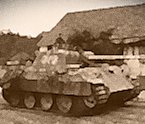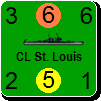Walloc
Posts: 3141
Joined: 10/30/2006
From: Denmark
Status: offline

|
quote:
ORIGINAL: map66
I do think the Soviet ability to trade massive amounts of space for time is ahistorical, but more to the point, I think it hurts game play. While I find the proposition that the Soviet Union would have collapsed doubtful, given, primarily, that they didn't collapse despite the beating they took in 1941-42, I do think both sides were operating under the assumption that the Soviet Union very well might. On the one hand, the whole notion of "one good kick and the whole rotten edifice will come crashing down" caused the Germans to over-extend themselves in both years' campaigns, thinking that just one more push would bring victory. Conversely, Stalin's own doubts about his regime's durability (witness his nervous collapse in his dacha in October 1941 for evidence of his psychological fragility) was one very major factor in both the forward defense in 1941 such as during the Battles of Smolensk or Kiev as well as the "not a step back" order in 1942, among many, many other examples of Soviet refusal or inability to trade space for time.
Your hitting the nail right there " many other examples of Soviet refusal or inability to trade space for time."
There is a huge difference in inability and in refusal. Ppl dont want the germans boxed in. I hear it all the time. Good.
So why is the answer to box in the russians. Why shouldnt they be allowed to improve on history. If the germans allow em why shouldnt they be able to retreat, why should they get pocketed in Kiev.
There are lots of hard coding as it is making the russian army in disarray as it should be in 41. But allow teh players to make their own mistakes as russians did historicly. I'd stipulate if u look at the russian history they fought for places, but wasnt generally speaking hung up on em. Retreating if they could, but as history showns they did get out manuvered at times, alot so in '41 and got pocketed. U dont see the pockets generally speaking in '42 and later and when u did so, it was cuz being operationally outmanuvered. Making bad operational choices, over extending and so on. Thats in game terms same as when ppl make bad choices, getting cut off and so on. I dont see ppl rallying to say, we gota force the germans to make a Stalingrad too.
quote:
In game terms, I'm a proponent of adding a variable percentage chance for Soviet collapse that changes with time and is primarily tied to how many urban centers are being lost over what time period (for example, loosing 5 major urban centers in one turn is bad...), and could receive a major boost from events such as the fall of Moscow or Leningrad, or earlier in the war, receive a reduction if the Soviets are holding onto locations like Smolensk or Kiev. Again, I don't think Soviet collapse was historically likely, but I do think the possibility of such will in game terms cause a better simulation of the constraints acting on the participants. Ideally, it would be modeled to encourage the Germans to go all out (including motivation in the November '41 winter tuns to make a last gasp rather then digging in for the blizzard), and similarly cause the Soviets to try and fight forward on lines like the Dnepr. At the least, it would make it an agonizing choice for the Germans to NOT keep pushing recklessly forward or the Soviets to NOT risk major encirclements with a forward defense.
Of course, I could see many people disliking the rule, so I imagine it would need to be optional. And having a role at the beginning of each turn to see if the Soviets collapse or not would be rather agonizing, and might lead to somewhat anti-climactic endings to games, but I see few other ways to really model the sort of limitations the Germans and Soviets were operating under.
Well i earlier today suggested the possbility of different sets op options for VP levels. I think is more in line with ur thinking here, if not completly so. U could suggest another set of options, the more the merrier.
Kind regards,
Rasmus
|
 Printable Version
Printable Version












 New Messages
New Messages No New Messages
No New Messages Hot Topic w/ New Messages
Hot Topic w/ New Messages Hot Topic w/o New Messages
Hot Topic w/o New Messages Locked w/ New Messages
Locked w/ New Messages Locked w/o New Messages
Locked w/o New Messages Post New Thread
Post New Thread